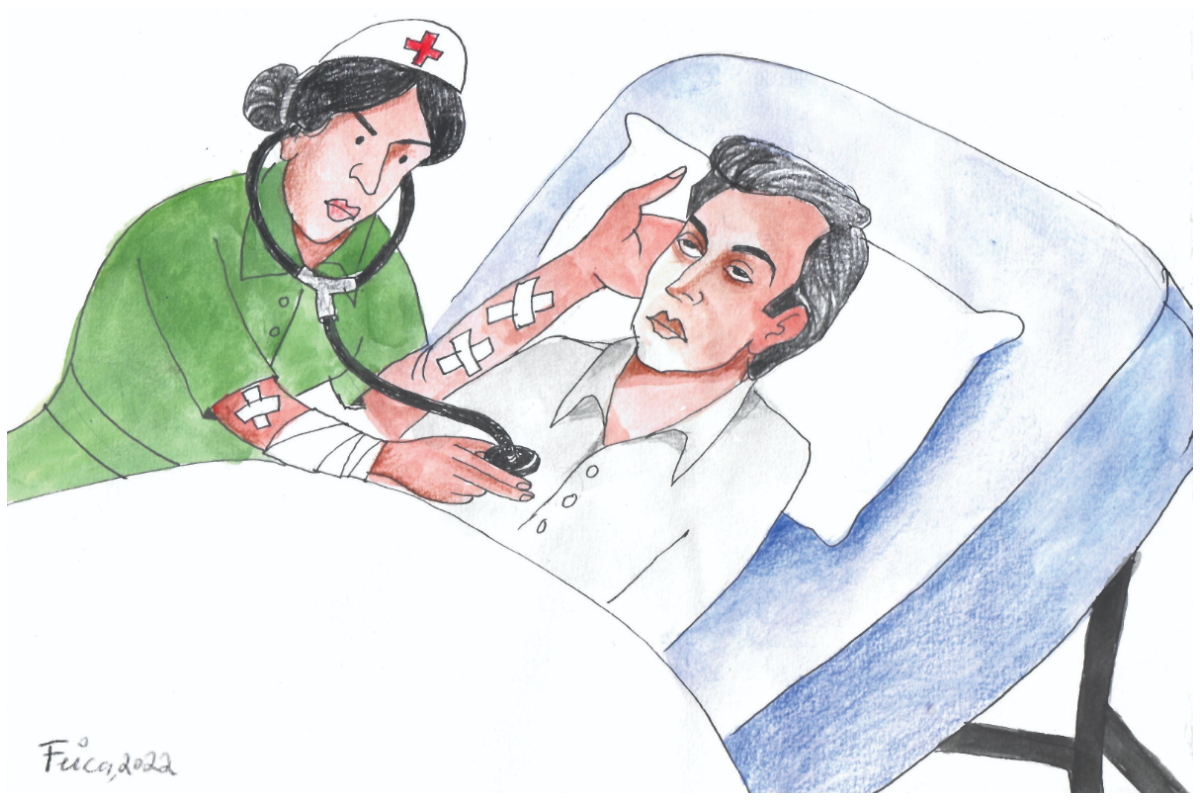
Every third health worker a victim of violence
Patients, visitors start physical, verbal abuse against ambulance staff, paramedics and nurses
The health workers in Pakistan are at a 16-fold higher risk of being exposed to violence in comparison to other workplaces, a study has revealed.
The study was conducted by the Appna Institute of Public Health of the Jinnah Sindh Medical University and the International Committee of Red Cross Pakistan.
According to the findings, more than one-third (38.4 per cent) of health workers have experienced all forms of violence in the last 6 months, out of which, verbal violence was most common (33.9 per cent) followed by physical violence (6.6 per cent).
The major reasons for physical violence were the death of patients (17.6 per cent), the serious condition of patients (16.6 per cent) and the delay in care (13.4 per cent). Among the different types of fields of healthcare workers, the operators of emergency vehicles were at a higher risk of experiencing verbal violence as compared to the lady health workers in the field, the study shows.
Dr Lubna Baig, Chairperson Appna Institute told Bol News that violence against health workers is a major problem ignored conveniently. “The health workers are on the frontline; dealing with people in stressful and unpredictable situations. This study was conducted to determine the prevalence and associated factors of violence against healthcare personnel. It was observed that health workers also experienced mental health issues,” she explained.
According to the study, healthcare workers’ well-being is harmed when they are subjected to physical or verbal abuse. It is the most serious issue impacting their well-being and competitiveness. In almost all forms of abuse, including minor acts, the victims experience trauma, which has long-term negative consequences on their health. Doctors who have experienced physical assault are likely to get serious or fatal injuries. One or more aftereffects of such incidents include flashbacks, insomnia, fearfulness or taking time off work. Violent attacks may not only cause bodily injuries but can also have post-traumatic consequences with high rates of mental stress. The consequences are emotions such as anger or anxiety extending to psychological disorders such as burnout. Physical violence, especially the use of weapons against healthcare workers, contributes to the prevalence of post-traumatic stress disorder.
While highlighting the findings of the study, Dr Lubna stated that in most cases, violence is perpetrated by patients and visitors. She described that usually the ambulance staff, paramedics and nurses face violence, and after having experienced such incidents, their mental well-being gets hampered.
“The categories of health workers, who are at higher risk, include nurses, emergency room staff and paramedics”, she apprised and added that the nurses and physicians cannot provide proper care when they are worried about their safety. The violent interactions at health care facilities can delay urgently needed care for patients”, she maintained. “The studies show that workplace violence reduces patient satisfaction and employee productivity, and increases the potential for adverse medical events”, she also apprised.
Institutional mechanisms and socio-political factors were indented through in-depth interviews and focus group discussions during the studies. Most respondents said that violence erupts as a consequence of emotional reactions by attendants (less frequently by patients themselves) due to patients’ serious conditions or adverse outcomes. Another more frequently mentioned reason was unreasonable expectations of the patients and attendants from healthcare institutions. The communication gap between health workers and patient attendants remains the major cause.
Sharing her experience spanning over three decades, Dr Seemi Jamali, former Executive Director at Jinnah Postgraduate Medical Centre, stated that most cases of violence or beating up healthcare workers used to take place at the emergency department. She said usually the patients’ attendants vent their anger on the duty staff. Most such incidents went unreported to the law enforcers as healthcare workers usually forgive them for being emotional due to the loss of their loved ones, she opined.
Doctors urge the authorities to enact federal law relating to the protection of healthcare workers from violence and intimidation. They suggested that restrictions should be imposed on multiple attendants inside the hospital to ensure that mob violence does not take place.
According to the World Health Organisation, up to 38 per cent of healthcare workers are subjected to physical abuse at some point in their careers, resulting in social trauma and burnout that consequently impact their work.
Catch all the Urban Insight News, Breaking News Event and Latest News Updates on The BOL News
Download The BOL News App to get the Daily News Update & Live News.












 Read the complete story text.
Read the complete story text. Listen to audio of the story.
Listen to audio of the story.